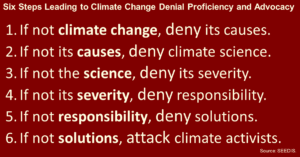 Climate change denial is a form of science denial characterized by rejecting, refusing to acknowledge, disputing or fighting the scientific consensus on climate change. It refers to denial, dismissal, or doubt of the scientific consensus on the rate and extent of global warming, its significance, or its connection to human behavior, in whole or in part and is a form of science denial that can take pseudo-scientific forms. Climate change denial includes unreasonable doubts about the extent to which climate change is caused by humans, its effects on nature and human society, and the potential of adaptation to global warming by human actions. Climate change denial can also be implicit when people accept the science but fail to reconcile it with their belief or actions.
Climate change denial is a form of science denial characterized by rejecting, refusing to acknowledge, disputing or fighting the scientific consensus on climate change. It refers to denial, dismissal, or doubt of the scientific consensus on the rate and extent of global warming, its significance, or its connection to human behavior, in whole or in part and is a form of science denial that can take pseudo-scientific forms. Climate change denial includes unreasonable doubts about the extent to which climate change is caused by humans, its effects on nature and human society, and the potential of adaptation to global warming by human actions. Climate change denial can also be implicit when people accept the science but fail to reconcile it with their belief or actions.
Wikipedia. "Climate Change Denial". Accessed May 27, 2024. https://en.wikipedia.org/...
Posted on 28/05/24
Recent Abstracts

Allianz Risk Barometer – Identifying the Major Business Risks for 2025
Over the last two decades, the global re/insurance sector has experienced an increasing number of major natural catastrophes, such as winter storms, forest fires, severe heat waves and heavy flooding. Countries around the world are suffering the effects of climate change, which contribute to more frequent and extreme ...
Posted on 31/01/25

Correlates of Climate Change Skepticism
Climate change is a highly contentious topic that has led to such labels such as “alarmists” and “deniers”. While the former urge immediate and drastic action to stop global climate change, the latter deny many of the key claims made by scientists about climate change. Among other, less extreme groups, are the “skept ...
Posted on 29/01/25
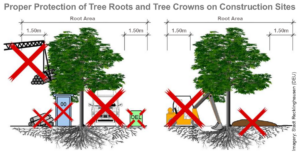
Vienna Tree Protection Act in Austria
The Vienna Tree Protection Act is considered one of the factors that makes Vienna the “most liveable city” in the world. While Vienna has a highly effective and strictly enforced tree protection ordinance, the rest of Austria vehemently resists such strict nature conservation measures. Regulations to protect trees an ...
Posted on 28/01/25
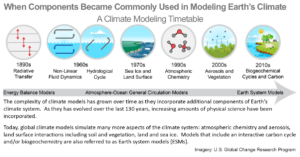
Combining Climate Models and Observations to Predict the Time Remaining Until Regional Warming Thresholds are Reached
The global climate is constantly changing and global warming is progressing faster than the best models can cope with. Assessing the future impact of influencing factors requires hundreds of years of simulations as we move further and further away from the reference points (see “Climate models can't explain what's hap ...
Posted on 27/01/25
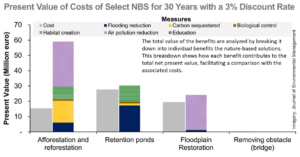
Economic Assessment of Nature-Based Solutions to Reduce Flood Risk and Enhance Co-Benefits
Flooding is increasing due to climate change, urbanization and land-use changes. Nature-based solutions (NBS) are commonly used as innovative and sustainable methods of flood risk management. In addition to reducing flood risk, NBS also offer economic and ecological benefits for society and the environment. However, ...
Posted on 27/01/25
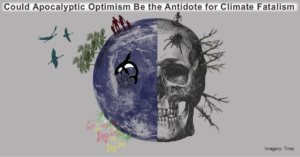
Apocalyptic Optimism Could Be the Antidote for Climate Fatalism
Mass mobilization driven by the pain and suffering of global climate shocks is expected to be the only way humanity can save itself from the climate crisis we have created. As the social impacts of climate shocks increase in both frequency and severity, they will trigger an “AnthroShift” in which personal and economic ...
Posted on 25/01/25
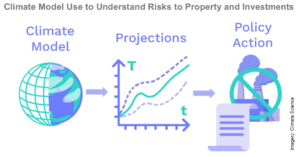
Climate Models Can’t Explain What’s Happening to Earth
Global climate is constantly changing and global warming is moving faster than the best models can handle. Assessing the future impact of influencing factors requires hundreds of years of simulations while we are moving further and further away from our reference points. “We are asking a lot of the models” because m ...
Posted on 24/01/25

Climate Uncertainty, Real Possibilities and the Precautionary Principle
While skepticism is crucial to scientific inquiry and research, the precautionary principle is ambiguous about the distinction between risk and uncertainty. One challenge for proponents of the precautionary principle is to clarify when evidence that a harmful event could occur is sufficient to consider it a real possi ...
Posted on 22/01/25
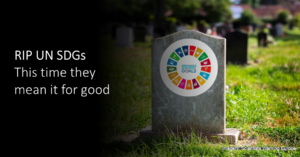
What Trump’s Exit from the Climate Deal Really Means
This time, Trump's rejection of global climate efforts could mean a more profound blow as it comes into effect sooner and at a time when the new president has more far-right allies overseas and at home. Promptly after taking office on January 20, President Donald Trump issued an executive order that the US will on ...
Posted on 21/01/25
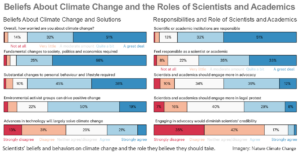
Climate Change Engagement of Scientists
Climate change denial rejects, disputes or opposes the scientific consensus on climate change. Climate change denial includes unfounded doubts about the extent of human-induced climate change, its impact on nature and human society, and the potential for human action to adapt to global warming. Climate change denial ...
Posted on 20/01/25
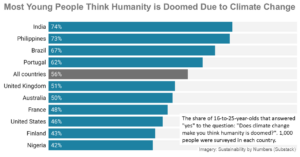
Climate Anxiety in Children and Young People and Their Beliefs About Government Responses to Climate Change: a Global Survey
This large-scale survey on the climate anxiety of children and young people globally looks at their attitudes to climate change and its relationship with the perceived government response. It surveyed 10,000 young people aged 16 to 25 in ten countries with 1,000 young people in each. More than half – 56% – said that “h ...
Posted on 18/01/25
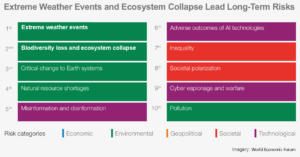
Global Risks Report 2025
Environmental risks present the greatest deterioration in the findings of the Global Risks Perception Survey 2024-2025, which captures insights from over 900 experts worldwide. Extreme weather events are anticipated to become even more of a concern, with this risk ranked #1 in the 10-year risk list. Biodiversity loss ...
Posted on 17/01/25
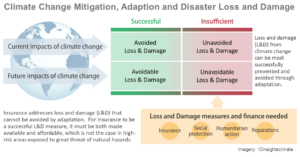
Getting the Costs of Environmental Protection Right: Why Climate Policy Is Inexpensive in the End
The misconception that stringent climate policies are too costly is widespread among political decision-makers and the public and an often-used argument by governments for sluggish policy making. However, the cost argument ignores the long-term economic benefits of policy changes and is build on the decomposition of e ...
Posted on 16/01/25
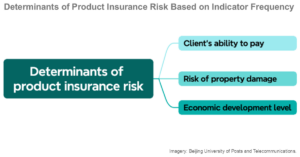
A Modeling Study of Insurance and Real Estate Risk Assessment in the Context of Global Climate Change
Catastrophic losses from extreme weather events are on the rise across the world, severely testing the capital reserves and claims-paying capability of many insurers. The total damage and economic loss from the Los Angeles fires alone is now estimated to be between $250 billion and $275 billion. Of this, insurers are ...
Posted on 15/01/25
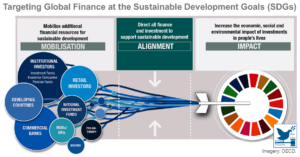
Targeting Global Finance at the Sustainable Development Goals (SDGs)
In 2015, the international community committed to a shared global vision towards sustainable development that includes 17 Sustainable Development Goals (SDGs) and identifies the areas where the most resources are most needed. The greatest potential for achieving the SDGs lies in aligning public and private resources w ...
Posted on 14/01/25


